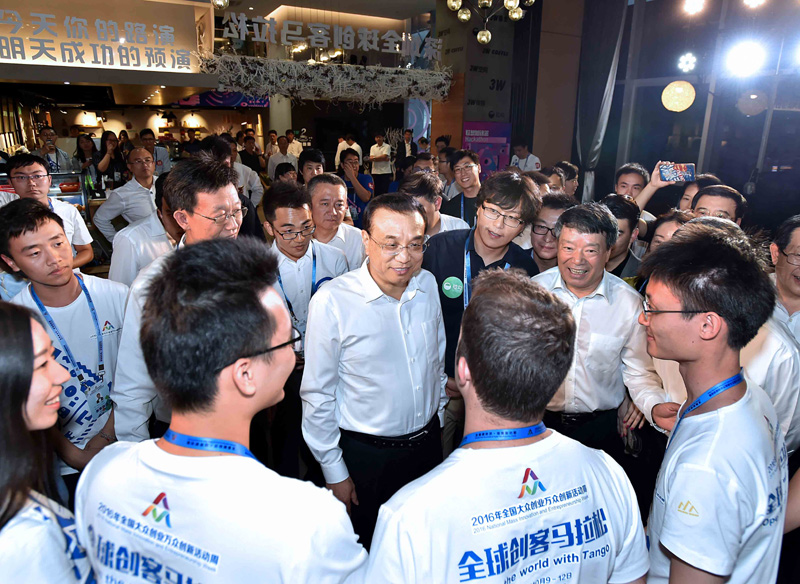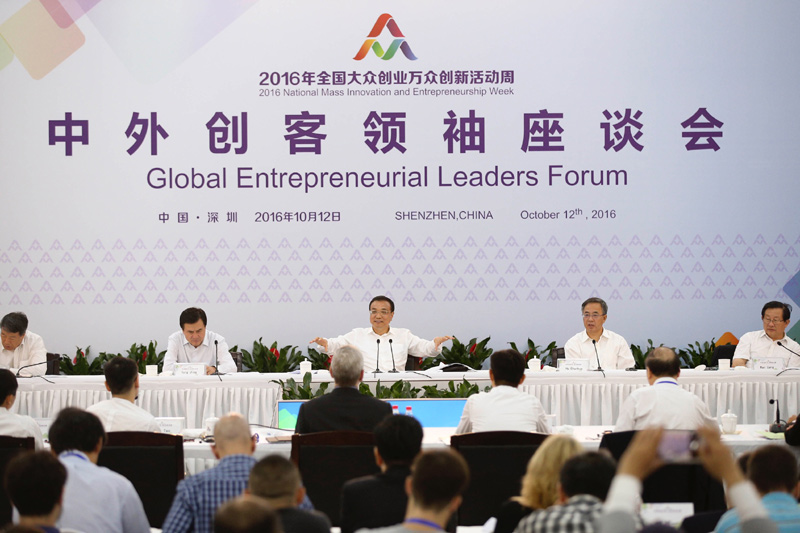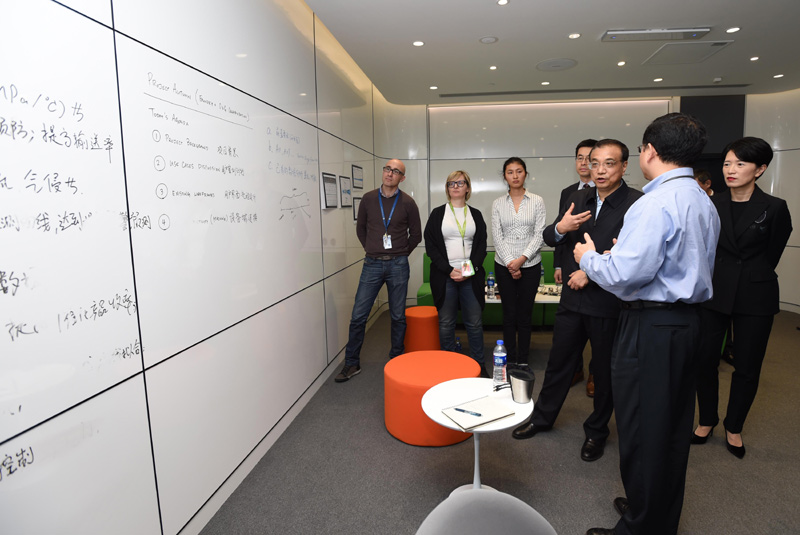
Giving up a high-paying job in San Francisco and starting a business in Shenzhen, China, Canadian Lawrence’s choice won the support of many friends around him.
"They are very envious when they know that I am coming to China, because they think that China has the most imaginative market at present." Lawrence said, "The atmosphere of entrepreneurial innovation in China is very strong, and you have unlimited possibilities to achieve what you want to do."
In fact, more and more overseas "makers" choose to come to China just like Lawrence, and what attracts them is the "mass entrepreneurship and innovation" advocated by Premier China.
Go to China to start a business! ",the British" Financial Times "website that noticed this phenomenon reported on this topic. "Economist" magazine also said: "Shanzhai merchants are gone, and innovators are coming!" Taking Shenzhen as an example, the report points out that it is attracting all kinds of entrepreneurs around the world who are trying to make new products in new ways. Invention and innovation are transforming the whole Pearl River Delta into an advanced manufacturing cluster.
Chen Siyu, Commercial Officer of the Swedish Consulate General in Shanghai, said that Sweden is a "country of innovation", and there are about 20,000 start-ups with a total population of 10 million. However, in recent years, Swedish entrepreneurs have come to China one after another, because most of them have to rely on their own development to start their own businesses in Sweden. In China, the government has invested a lot of manpower, material resources and financial resources to support entrepreneurial innovation, and with a relatively complete industrial chain in all walks of life, it is called "maker’s paradise".

"internet plus" faces the whole world, and foreigners find new opportunities in China.
"China is vigorously promoting ‘ Internet plus & rsquo; This is itself global. " On June 28th, Premier Li Keqiang’s statement during the dialogue and exchange with the representatives of international business circles attending the Davos Forum in the summer of 2017 was regarded as a "strong signal" released to foreign businessmen.
China’s booming "internet plus" and consumption upgrading have already made more and more foreigners see the business opportunities of starting new businesses. And China’s superior "double innovation" environment is making their entrepreneurial dream come true.
German Alberton founded Zanado Company in China, which not only provided online travel booking service, but also opened an offline VR experience store, bringing travelers a 360-degree virtual travel experience. Alberton said that China people are willing to "try early", while it may take 10 years for the United States and Europe to accept these.
Lan Jili, founder of Vitas, a game and entertainment production company, believes that the China government is very friendly to entrepreneurs, and "we have the opportunity to bring new technologies into China". Jared, founder of R2Games, said: "In the era of mobile Internet, it is safe to say that China is ahead of Americans in this area. For a global Internet company, the opportunity is now in China. It won’t happen anywhere else, it can only happen here. "

It takes two years in the United States and only half a year in China. China is the first choice for hardware entrepreneurship.
The Economist also found that China is rewriting another rule, that is, embracing open innovation. Taking Shenzhen as an example, the report points out that China’s open innovators are not secretive, but are committed to providing solutions for the public. Analysts pointed out that the "double-innovation ecosystem" formed by the integration of China’s policy support and complete industrial chain is unmatched by many other countries.
The world’s thinnest folding full-color touch screen produced by Rouyu Technology Co., Ltd. needs a lot of "integrated innovation" and "maker" ecosystems from early research to finished products. Bill Liu, the founder of the company, said that when he set out to establish Rouyu, it was clear that the company had to establish itself in Shenzhen to be successful.
Jenny Lee, an investor in the hardware industry and a partner of GGV capital (GGV), said that in Shenzhen, it takes only half a year for a hardware startup to turn a concept into a product, which usually takes two years in the United States. When Revols, a Canadian "maker", tried to develop economical customized headphones in Montreal, he found that things there were slow and expensive. After he moved the company to Shenzhen, he quickly made a prototype and the product has been put into production.
"China’s already blazing pace of innovation is still accelerating!" The Economist said. Many multinational companies have set up "observation posts" in China to pay close attention to the latest trends here. Shenzhen, China has become one of the global innovation centers of intelligent manufacturing, and is favored by all kinds of "makers".
Scientific research results can land, and scientists bring "black technology"
Many foreign "makers" said that overseas, many "black technologies" are only academic achievements, but coming to China, which is full of possibilities, can make it a reality.
Professor Wusi Kaelte, an academician of the European Academy of Sciences, believes that China’s government and industry are actively promoting the application of artificial intelligence (AI) and big data, and starting a business in China is the best opportunity for its research results to land. The scientist in the field of artificial intelligence set up the Institute of Know Infinite Artificial Intelligence in Beijing in May this year, and cooperated with JD.COM, BOE and other enterprises to help China enterprises build an innovative ecosystem in the fields of AI visual recognition and translation.
Liu Huijun, dean of the School of Electronic Engineering of the Korean Academy of Sciences, also settled in Dongguan with the whole team. Its "black technology" AI-AR smart glasses will be mass-produced locally, which can realize remote precision maintenance of automobiles and airplanes. As long as the staff wear this kind of smart glasses, they can see the maintenance scene and remotely maintain it. In the process, they can also see the analysis of the fault made by AI behind the glasses.
In the article calling for starting a business in China, the Financial Times website wrote that overseas entrepreneurs who have successfully started a business in China have pointed out a new path for young people who are interested in starting a business.
As Premier Li Keqiang said: "Our entrepreneurial innovation is open. We should sum up experience and attract enterprises from more countries to come with capital, technology and talents, so as to achieve a win-win situation in cooperation." (Beijing News special correspondent Mu Yi)